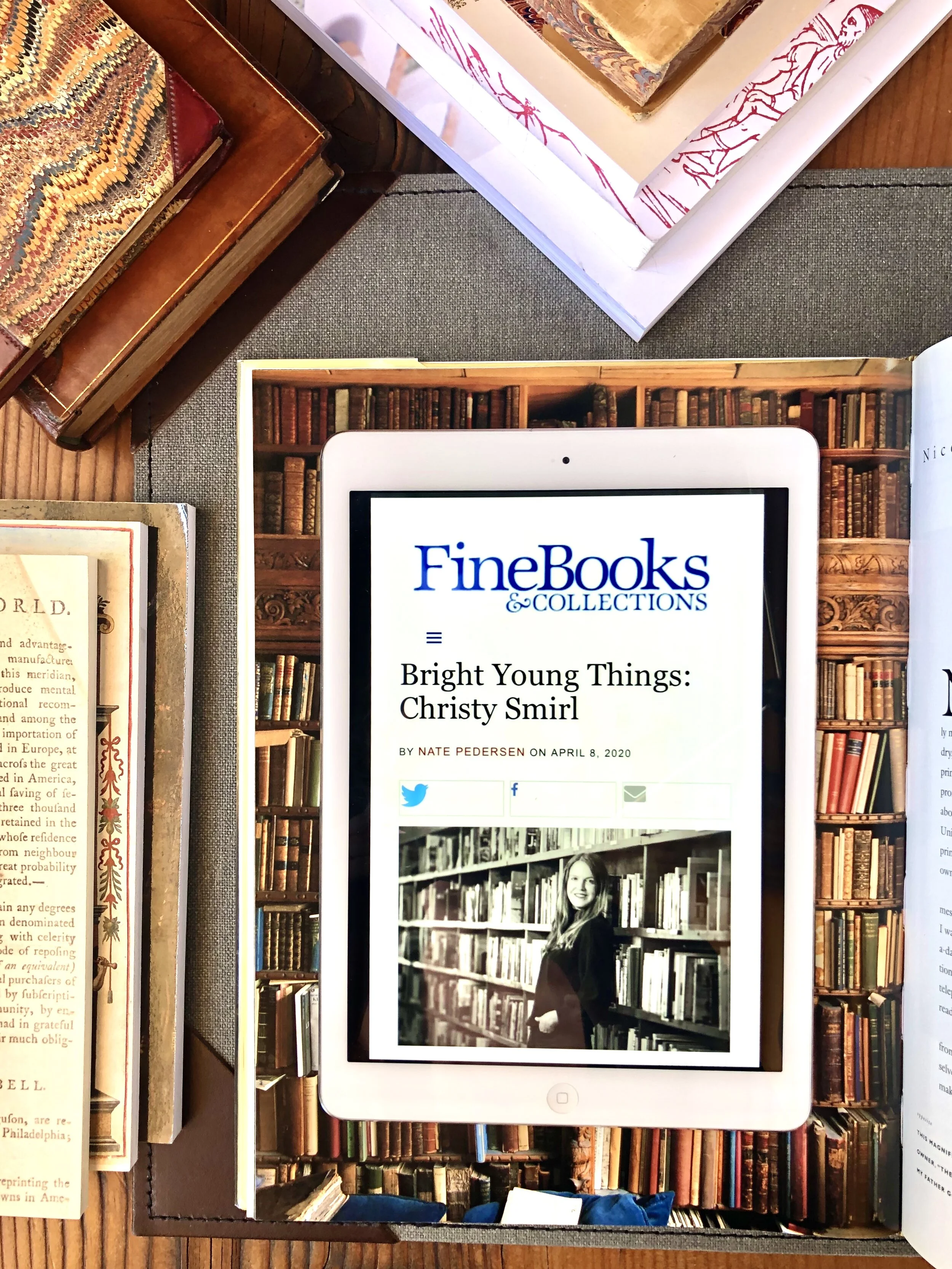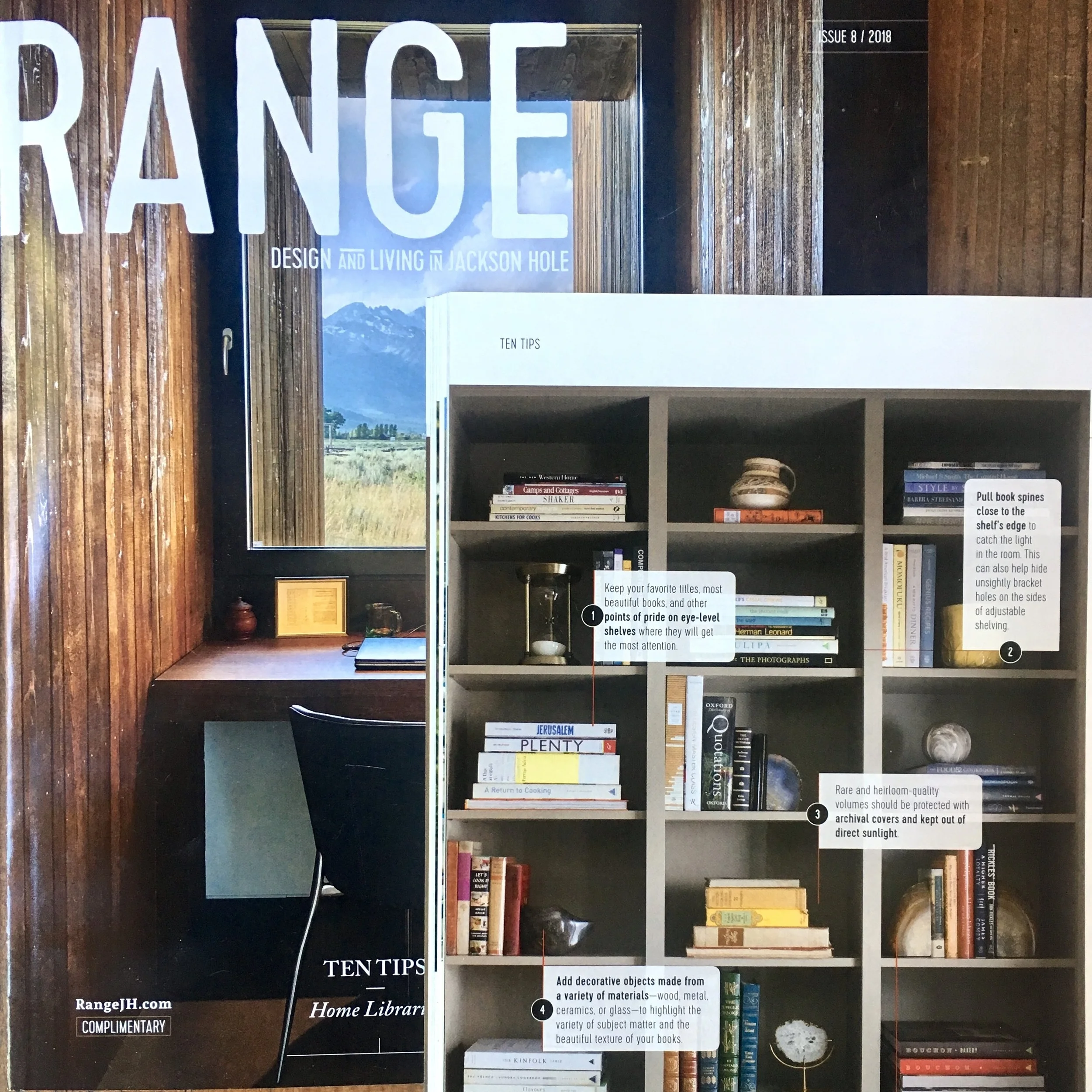Why Catalog Your Private Collection?
By Elisa Shoenberger
People spend months, years, and even decades developing their book collections. Some build up specific collections focused on a theme, while others have a fondness for buying a rich miscellany books. Either way, as those acquisitions of books and papers grow, it becomes harder and harder for people to keep track of what books they own. That’s where hiring a private librarian to catalog a library can make the difference. Private librarians bring their expertise and time to help book owners tackle what can be a daunting task in a growing collection.
Catalogs differ depending on the needs of the client. Some catalogs can be a simple list of titles and corresponding ISBN numbers. Other people may want a more extensive description of their collection with information on edition, condition, dust jacket, and other elements that can make a book unique or not. The format of the catalog ultimately depends on a client’s needs and the type of items.
People have different reasons for wanting a catalog of their collections. “Some people simply want to know what they have and how it is organized, ” Christy Shannon Smirl, founder of Foxtail Books, explains, “Our most bare bones catalogs are just documentation of all of the books in a room.” That’s where a simple spreadsheet list might be handy.
For some collectors, a more detailed catalog can be immensely useful. Smirl says, “ an in-depth catalog might include a narrative description of each book that tells its story relative to its subject, or the people associated with the book, such as its previous owner or its author.” For instance, a copy of Hamlet could turn out to be the exceedingly rare 1603 “bad quarto” of Hamlet, or it could be a fairly common 18th century copy. Ultimately, a good catalog aims to provide a better understanding of the content of the collection and help to expand the owner’s knowledge of their books.
“A catalog opens up an avenue to share the collection with other people,” Christine von der Linn, Senior Specialist of Art & Illustrated Books at Swann Auctions, explains. Cataloging makes it easier to loan your collection to libraries, societies, and museums that might be doing a relevant exhibit, she points out.
Catalogs can also help make a bibliophile into a better collector, explains Smirl. “A catalog writes the story of what you are collecting,” she says. “It adds value when you are able to eloquently describe what you have and why it is interesting.” Owners of books and papers can learn how to round out their acquisitions by exploring the depth and/or breadth of relevant topics. It can also prevent duplicate purchases, which can easily happen in a large collection.
This process also helps assess the value of the collection. Private librarians can appraise a library by comparing items in the marketplace to determine if the copy in hand is unique and thus, possibly valuable. For instance, modern first editions with intact dust jackets can be extremely valuable. An appraisal puts a value on the entire collection that can be used for different purposes, such as insurance, inheritance, or outright sale.
“When you are presenting a collection to a potential buyer or auction house, they are looking at the collection as a whole, as well as the importance of individual pieces,” says von der Linn, “Cataloging allows you to contextualize the collection to understand what it says, how it was crafted and different angles that the collector thought.” It helps potential sellers navigate the books and ephemera as well.
But cataloging is not just about putting a price on the collection. It can help grow the library. Private librarians can make recommendations on books to deaccession and replace books and ephemera with better copies or versions. A collector may own a decent copy of a first edition of James Joyce’s Ulysses, for example, but there may be an opportunity to upgrade their copy by picking up an edition in even better condition.
A recent organization and cataloging project completed by Foxtail Books, covering over 1,200 cookbooks collected throughout a lifetime.
Here at Foxtail, we’ve had the opportunity to catalog a variety of collections. Recently, we had the experience of working with an retired couple with about 500 rare Swiss and French volumes they had inherited from their families. They had begun thinking about their legacy and wanted the collection to be distributed within the family. The client hired us to develop a catalog to document what was in their library.
Last year, we had the delightful experience of working with a woman who had amassed over 1,200 cookbooks and books related to food history, collected over 50 years. She had begun picking up cookbooks when she traveled internationally and within the US. She loved cooking so much that she even went to culinary school in her fifties. As a result of her travels and passion for food, she amassed an impressive collection of books, including some rare and unique cookbooks. In addition to designing the space for her cookbook library, we cataloged and organized the collection since our client and her husband had just moved. The catalog let her know what was in her extensive library and also helped to remove multiple copies of the same book. Ideally it will also prevent future duplicates from being purchased in the future.Our services provide clients with the catalog that suits their needs, whether it is a client who wants a list of books or the client who wants comprehensive research on their entire library. We bring our professional expertise to help you better understand what is in your collection.
Elisa Shoenberger is a writer and journalist. She writes for Book Riot, Book and Paper Fairs blog, Inside Philanthropy, and Streeterville News. She has also written for the Boston Globe, Deadspin, Artsy, Hyperallergic, and many other publications.












